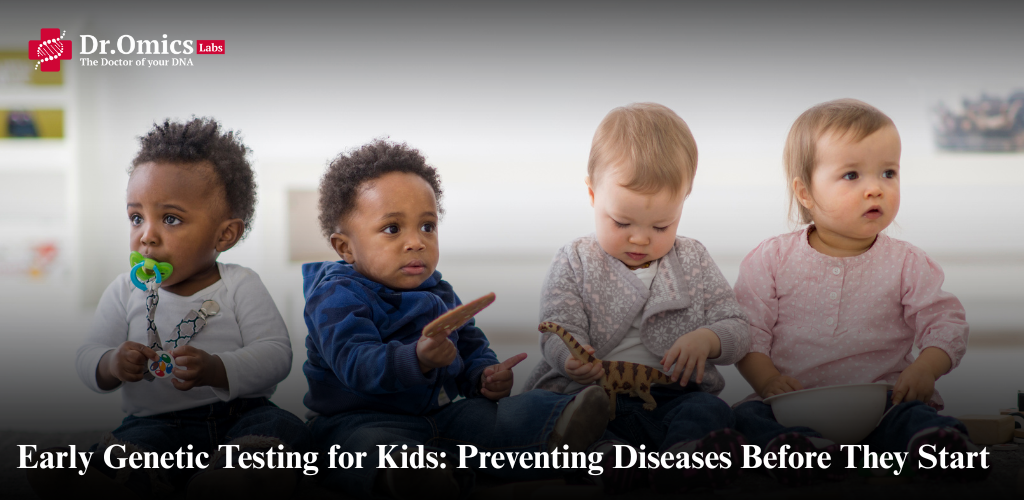Early genetic testing in children, often called genomic pediatrics, is rapidly transforming child healthcare by enabling the detection and management of childhood genetic disorders before symptoms appear. Through advances in DNA testing for babies, clinicians can identify inherited conditions in children at or shortly after birth, allowing for timely interventions that prevent or mitigate disease progression.
What is DNA Testing for Babies?
DNA testing for babies involves analyzing a newborn’s genetic material to screen for mutations or variants linked to genetic diseases. Traditional newborn screening tests have expanded from a few metabolic disorders to include comprehensive genomic methods that detect a broad range of rare and serious conditions affecting infants.
By conducting tests early, doctors can:
- Detect disorders that may not yet cause symptoms but require early treatment
- Tailor monitoring and care plans specific to each child’s genetic risk
- Inform families about inherited conditions and reproductive risks
The Importance of Genomic Pediatrics
Genomic pediatrics integrates genetic testing into routine pediatric care, focusing on diagnosing both common and rare genetic conditions in children swiftly and accurately. This approach improves:
- Diagnostic speed and certainty for conditions causing developmental delays, seizures, or physical abnormalities
- Precision in guiding treatments tailored to the genetic cause, improving outcomes
- Early identification of potentially life-threatening inherited disorders, such as cystic fibrosis or spinal muscular atrophy
Understanding Childhood Genetic Disorders and Inherited Conditions in Children
Many childhood diseases have a genetic basis, ranging from monogenic disorders caused by mutations in a single gene to complex conditions influenced by multiple genes. Some inherited conditions may appear without a family history due to new mutations.
Examples include:
- Metabolic disorders that interfere with the body’s ability to process certain nutrients
- Neurological conditions impacting development
- Immune deficiencies making children prone to infections
- Genetic syndromes involving multiple organ systems
Early genetic testing allows prevention strategies such as dietary adjustments, early medication, or gene-targeted therapies before irreversible damage occurs.
Benefits and Considerations of Early Genetic Testing
- Prevention and Early Intervention: Detect diseases early, enabling prompt treatment that can prevent severe complications
- Precision Medicine: Customize care based on a child’s unique genetic profile
- Family Planning: Identify genetic risks that can inform parents’ reproductive decisions
- Emotional and Psychological Impact: Families may face anxiety or distress from genetic findings
- Privacy and Data Security: Concerns over how genetic information is stored and who can access it
- Limitations: Not all genetic variants predict disease; some findings may be uncertain or incidental
- Ethical Issues: Decisions about which conditions to test for and how results are used involve complex ethics




